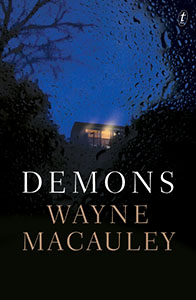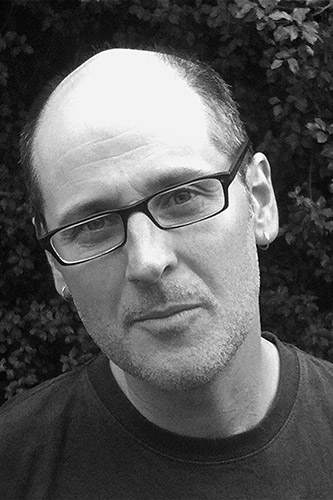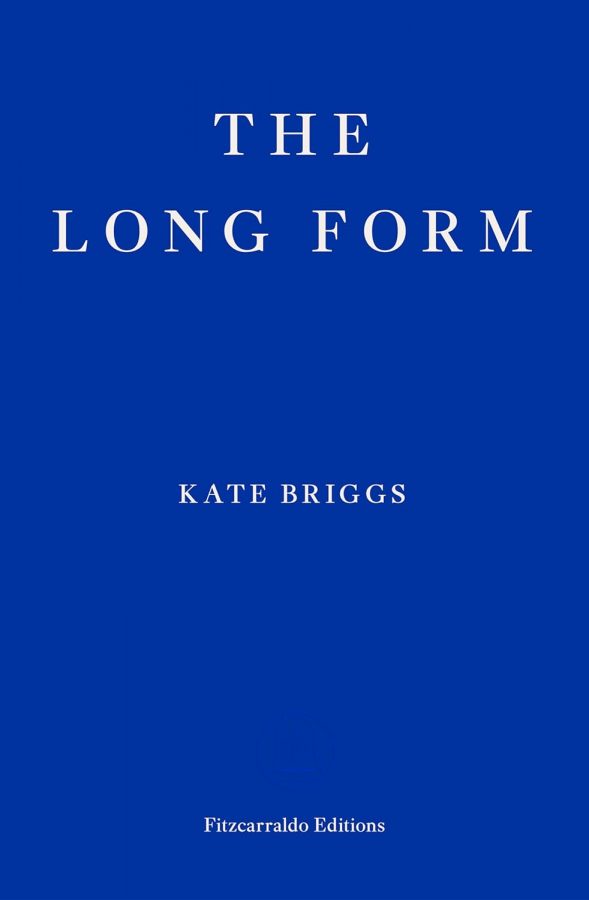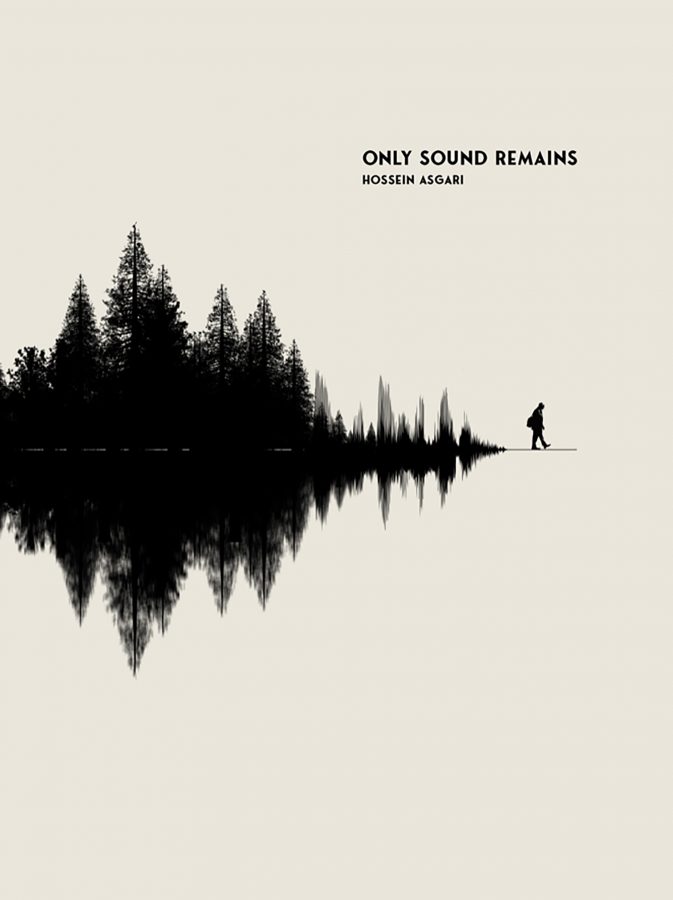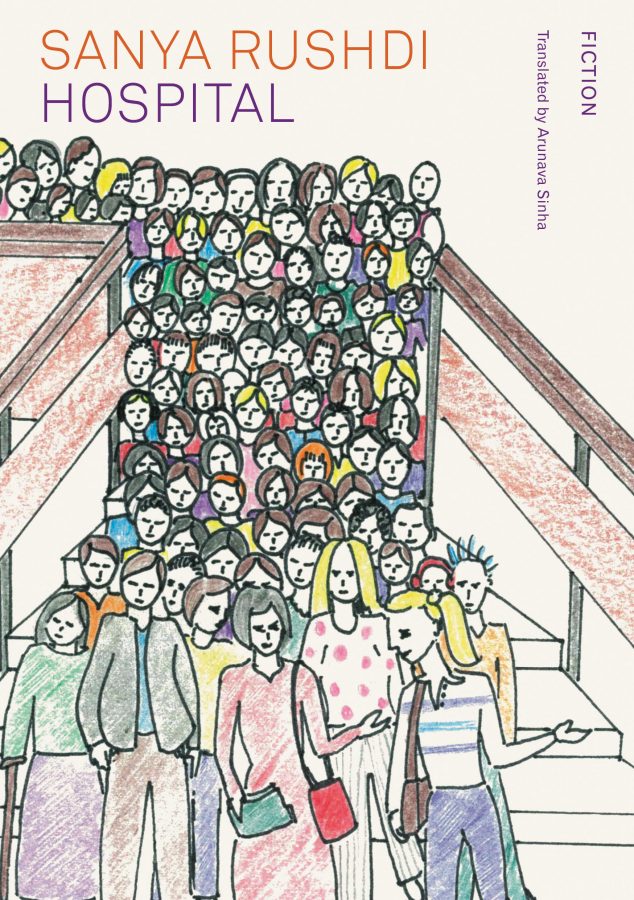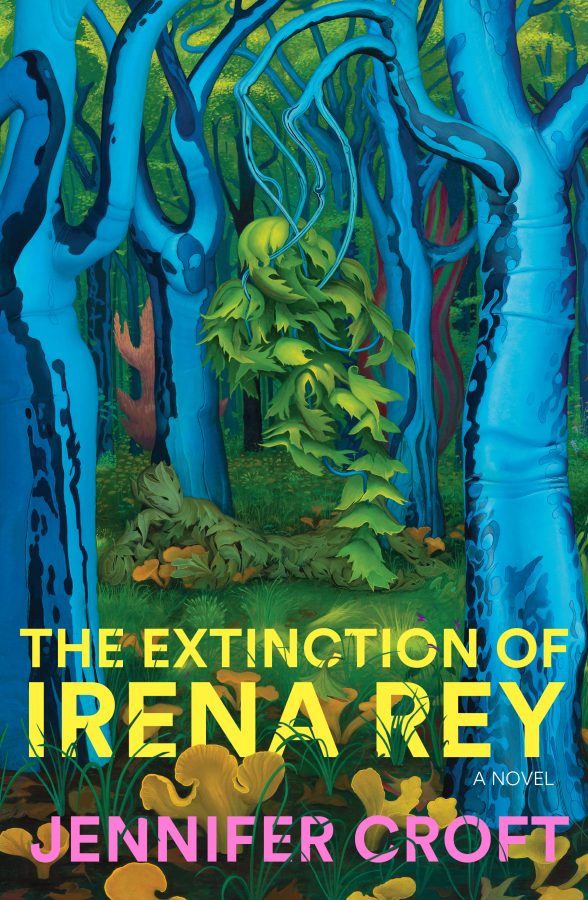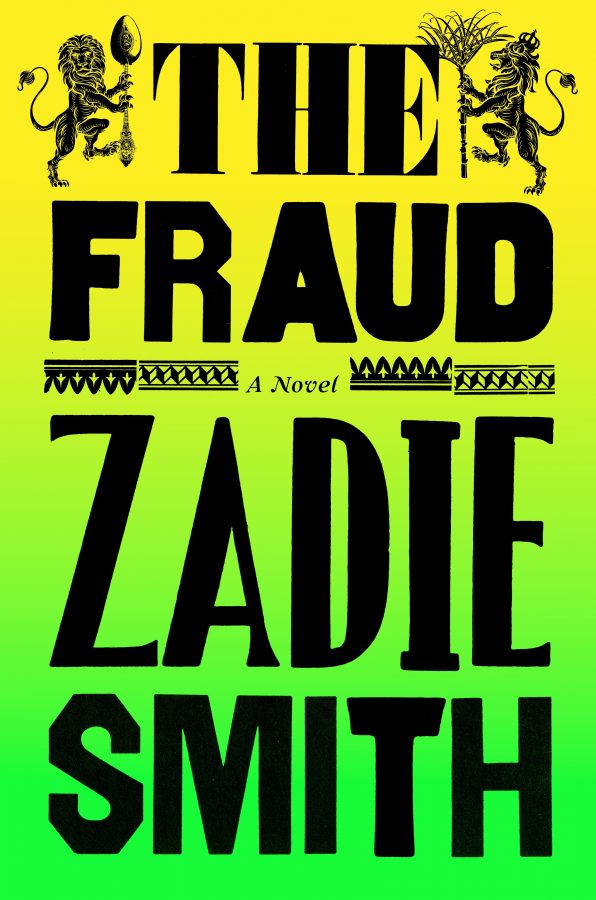The title of Dostoevsky’s satire of Russia’s nineteenth century radicals, Bésy (1872), has been variously rendered in English as The Possessed, The Devils and, in the translation by Richard Pevear and Larissa Volokhonsky, Demons. The different versions reflect the difficulty of capturing the precise implications of the Russian title. Dostoevsky’s characters are possessed by the modern ideas – the materialism, the liberalism, the Western ‘nihilism’ – that he believed were corrupting Russian society. Yet the title refers not to those who are possessed, but to the possessors. Dostoevsky’s nihilists are not demons themselves; they have demons.
Explaining his and Volokhonsky’s preferred translation, Pevear argues that the title needs to be understood in light of the novel’s two epigraphs. The first, from Pushkin’s poem of the same name, evokes the folkloric idea of demons as nasty tricksters. The second is from the biblical story of the Gadarene swine, in which Jesus exorcises some demons from an afflicted man, driving them into some pigs, which promptly stampede into a lake and drown. Dostoevsky’s biographer Joseph Frank has suggested that the second epigraph, in particular, is one of the keys to the novel. Demons means to show how the diabolical ideas that flow from the pivotal character of Nikolai Stavrogin possess those around him with destructive results, but it also raises the possibility of liberation from the oppressive ideologies of modernity. Near the very end of the novel, after events have descended into mayhem and murder, Stepan Trofimovich Verkhovensky – father of the nihilists’ ringleader, Pyotr Stepanovich – delivers a feverish speech in which he recognises his culpability and envisions a society redeemed:
it’s exactly like our Russia. These demons who come out of a sick man and enter into swine — it’s all the sores, all the miasmas, all the uncleanness, all the big and little demons accumulated in our great and dear sick man, in our Russia, for centuries, for centuries! … But a great will and a great thought will descend to her from on high, as upon that insane demoniac, and out will come these demons, all the uncleanness, all the abomination that is festering on the surface … and we will rush, insane and raging, from the cliff down into the sea, and all be drowned, and good riddance to us, because that’s the most we’re fit for. But the sick man will be healed and ‘sit at the feet of Jesus’ …
In appropriating Demons for the title of his fourth novel, Wayne Macauley alludes not only to Dostoevsky’s Demons (which he also quotes in the Pevear and Volokhonsky translation), but to the title’s biblical provenance. Near the end of Macauley’s Demons, in the holiday house off the Great Ocean Road where he traps his characters for the weekend, a secret is exposed and the cabin fever gives way to a physical confrontation. At this point, Macauley writes: ‘A herd of pigs ran down to the edge of the cliff and threw themselves into the sea.’
The explicitness of the allusion would seem to suggest that the incident represents the novel’s belated arrival at a liberating moment of truth. But it is more ambiguous than this. In context, the line has a sardonic air. It carries a sense of weariness and resignation. The moment of release is fleeting, at best. Macauley’s characters have at last broken through to a truth that is intimate and raw, but the underlying causes of their dissatisfaction remain unaltered, and as potent as ever. Certainly, no one is imagining redemption will come from on high.
The confrontation occurs at the fag end of a weekend away, during which the novel’s seven protagonists have entertained each other with stories that have veered into sensationalism, weirdness and grotesquerie. They have gathered in the holiday house to seek temporary respite from the technological tyranny of modern life, pledging to do without their phones and computers and televisions because ‘time is moving so fast and soon we’ll all be saying where the hell did our lives go?’ Their intention is to
throw away the rule book, let time stretch out before us. A different kind of time. Story time.
Story time! said Evan
Yeah, said Adam, closing the door, because that’s the kind of time we’ve lost; everything now is frantic time, desperate time, snatched time.
The word ‘hell’ is not incidental, of course, nor is the gesture of closing the door to the outside world. The demons tormenting Macauley’s middle-aged, middle-class characters are the creation of their hectic urban lifestyles. That the novel’s scenario is reminiscent of two pre-modern story cycles, Marguerite of Navarre’s Heptameron and Boccaccio’s Decameron, reinforces the notion: they are seeking refuge from the ‘plague’ of modern life itself. The idea for their weekend retreat has come from Megan, a documentary filmmaker, who has been ‘working with communities up in the Territory, interviewing old people, editing down the footage and sending out group emails about how amazing it was to watch people tell their stories like that’. She proposes that if they shut themselves away for a few days they ‘might get back to something real’.
There is a subversive irony at work here. Macauley is scrupulous in registering Megan’s avoidance of the words ‘Aboriginal’ or ‘Indigenous’ – an omission that has the subtle effect of reinforcing the sense that there is something condescending about her idealisation of a culture remote from her own. She has subjected these ‘old people’ to the objectifying technological gaze of her camera lens, edited them down, and turned them into the inverted image of her own unsatisfactory existence. They may well be as wise and authentic as Megan imagines them, but what her reaction allows us to infer with greater certainty is that, on some level, she suspects herself to be phony and shallow, and that she’s probably right.
This is the uncomfortable awareness that possesses the disaffected urbanites in Demons. Macauley’s depiction of his characters is not entirely unsympathetic, but he eyes their pretensions in much the same way that a butcher eyes a plump chicken. They are at least self-aware enough to detect that there is something hollow about their lives; they can sense something missing. It is just that they don’t exactly know what it is. They can’t quite grasp why their worthy attempt to rediscover meaning has an air of mockery and contrivance, why their attempt to revive a profound tradition of oral storytelling should immediately evoke the babyish notion of ‘story time’. It is as if they can’t bring themselves to take seriously their own serious purpose. They pass around a ‘story stick’ to indicate who has the floor at any given moment, a gesture meant to indicate that they are participating in an ancient and solemn ritual, but it just seems like an affectation. They are nagged by uncertainty. They stories they tell often leave them nonplussed, but when they are led to reflect on their lives, almost despite themselves, when they realise that they may, in fact, be approaching a moment of insight, they habitually turn their statements into questions, asking each other for validation, distancing themselves from discomforting implications, betraying their self-doubt – ‘… isn’t it? … doesn’t it? … weren’t we? … does it matter?’
Demons presents itself as a grab-bag of a novel: a collection of curious tales stitched together with black humour, sly parallels, earnest musings and snippets of philosophical argument. Its patchwork of short tales gives it something of an ad hoc feel, but it acquires coherence from its overt concern with the complicated relationship between the act of storytelling and the concept of truth. Macauley’s characters do not set out to tell confessional tales, and much of what they relate seems to be obviously fictional (to the reader, if not always to them), but they end up revealing themselves indirectly, inadvertently. They do, in fact, find themselves getting back to ‘something real’ – though perhaps not in the manner Megan envisaged. A pattern soon emerges: their stories all seem to revolve around the themes of dissatisfaction and escape, particularly escape from an urban setting to the imagined tranquility of the country, mirroring their temporary flight from their own lives.
Early in the novel, Hannah, the youngest of the group – who is described at the outset as ‘either wistful or stupid, depending on where you stood’ (though neither characterisation comes to seem entirely fair) – tells an improbable tale named after the trickster god Pan, and perhaps also after Knut Hamsun’s 1894 novel of the same name. It is about a girl who discovers that she is ‘allergic to everything we might call “modern”’ – chemicals, artificial fibres, food additives, plastics. In an attempt to purge her life of these things, she flees to a quiet coastal retreat, where she encounters a religious fanatic who rails against civilisation, denouncing modern cities as dens of iniquity. She then meets and falls in love with a local boy, only to come to a sudden and sticky end, as many of the protagonists in these stories do.
Hannah’s story prompts the others to wonder whether or not it could be true. That this is their immediate concern betrays a certain defensiveness or unease: it is one of the ways they have learned to avoid self-reflection. If a story is true, then they need not trouble themselves about its implications, since it is just something unfortunate that happened to someone else; if it is not true, it can be dismissed as an inconsequential fiction. (I would like to think, on this point, that Macauley is exaggerating the credulity and literal-mindedness of his characters for effect, though I can report that I did once participate in a discussion about Kafka’s Metamorphosis during which someone asked if it ‘really happened’.)
The general feeling is that Hannah’s story is believable. Only later does Adam, who is a little more astute than the others about such things, ask the obvious question: ‘Could those allergies, multiple chemical sensitivities and all that, chronic fatigue – could they, quod vide Sontag, be metaphors?’ Megan shoots him down – ‘They’re clinical conditions, Adam … I think that’s been pretty well established’ – but the idea subverts their literal cast of mind. The problem they run up against is that they have difficulty establishing the absolute truth or falsity of the stories, even those the tellers swear are accurate accounts. This uncertainty forces them to begin to interpret what they have heard, which draws out what is so unsettling, and thus potentially potent, about the art of narrative. They come to realise (albeit dimly) that storytelling, though it helps us make sense of the world, is a selective and tendentious form of objectification that places the narrator in an implied but not always obvious relationship with the slippery concept of truth. The act of narrating something distorts reality, turns it into fiction, but it also creates conditions in which meaning might reveal itself. As a result, even pure fiction has a strange way of turning against its inventor and not meaning what it is supposed to mean: it banishes truth only for truth to return in unexpected ways.
There is, it becomes clear, more to all this than postmodern epistemological head-scratching. As the characters are drawn into arguments about the truthfulness of what they have told each other, they are compelled to face the various ways in which their lives have been built on lies, large and small. Their stories force them to imagine situations and possibilities, which they can only begin to understand by reflecting (however reluctantly) on their own realities, on tangible ethical and political issues, and on discomforting questions about their role in the inexorable rise of the unhappy society they inhabit – a society that is materially comfortable yet unsatisfying and oddly oppressive, a society that is fact-rich but truth-poor. As Adam observes: ‘True’s a funny word.’
Christos Tsiolkas has been praised for placing the often unspoken issue of class in the foreground of his recent novel Barracuda (2013), but Macauley had beaten him to it with his breakthrough novel The Cook (2011), which addressed the subject with greater wit and originality. Barracuda treats the highly visible inequities of Australia’s education system as markers of social division; the conceit on which The Cook is based is that the contemporary fetishising of food and fine dining might be seen, not only as a symptom of decadence, but as a reflection of some rather regressive social attitudes. The television cooking competitions that have become popular in recent years have, among other things, provided a potent image of inequality and subservience. To watch the contestants, after they have slaved in their kitchens under imposed pressures, as they stand meekly, trembling with anticipation, twisting their aprons and biting their bottom lips, while they wait to hear whether some crapulent fop in a velvet jacket deems their food acceptable, is to be confronted with a culturally naturalised depiction of the relationship between master and servant.
In The Cook, Macauley sends his narrator, a teenage delinquent named Zac, to ‘Cook School’, a kind of juvenile reform prison, where he is watched over as he is being re-educated. There he is not simply instructed in the techniques of the kitchen and the butchery, he also learns that his role in life is to serve his superiors, and that this is supposedly empowering. Zac is, however, observant enough to recognise that the experience of fine dining, with its pretense of sophistication, effaces certain structural realities: not only the labour of the kitchen, but the brutality of the farmyard and the slaughterhouse. As he learns the subservience that is demanded of him, he internalises the contradictions and hypocrisies of the social order, setting the novel and its mentally unstable narrator on the path to a gruesome finale.
The comparison with Tsiolkas is worth pausing over, since both authors have sought, throughout their parallel careers, to write fiction with a political edge, but they have done so in contrasting ways. In his last two novels, Tsiolkas has settled on a sprawling issues-driven social realism as the most appropriate vehicle for his dramatic ideas. His work seeks to challenge conventional thinking with its content, but it assumes a conventional form. Its chief weapons are sincerity, passion and explicitness. Macauley’s fiction, by contrast, tends to be succinct, humorous and playful. It has a somewhat stagey quality that it readily embraces. The author’s social conscience reveals itself in wry satirical observations and stylised monologues; his stories work with allegorical implication (The Cook asks to be read as a dark fable), oppositions and inversions, offbeat premises and strange twists. Where Tsiolkas’s realism draws on the dramatic conventions of cinema and television drama, absorbing in the process some of the sentimentalising and simplifying tendencies of those genres, Macauley’s fiction often works within the kinds of formal constraints one associates with the theatre. Demons is not unrealistic, strictly speaking: its framing narrative (unlike some of the characters’ stories) involves nothing outlandish or fantastical. But it has an obvious formality of structure. It makes use of a limited setting and time-frame, not only to provide the novel with a convenient narrative scaffolding, but to create a dramatic unity, an enclosed space, in which a controlled sequence of entrances and exits is used to frame its interactions and set-pieces. The individual stories in Demons might seem extemporised and more than a little shaggy, but there is a purposeful process of cross-referencing going on, which knits the book together and amplifies its satirical critique.
In The Slap (2008), Tsiolkas presented a multicultural cross-section of Melbourne society in which, pointedly, the Anglo-Australian couple, Rosie and Gary, were positioned as the socially marginalised minority. Macauley’s ensemble cast in Demons is more culturally homogenous, though this is also meant to be pointed in its way. His characters all belong to the professional and creative classes. A few of them are a bit bruised and battered by life, but for the most part they have been reasonably successful. The group includes an intellectual property lawyer, a former journalist, a musician who makes money renovating and selling houses, a politician newly elected to parliament, and someone who works in ‘advocacy’ (whatever the hell that is). They spend their weekend away drinking nice wine and eating slow-braised lamb. This good fortune inspires a self-pitying lament:
There’s something a bit sad about us, isn’t there? said Adam. Us? said Lauren. I mean how we’ve only ever danced across the surface, had everything our own way, free education, free dole; no wars, no revolutions. We’ve not lived to the limit of human experience, we’ve moved in a little circle. We’ve looked out for ourselves, not others, and if we do make some big magnanimous gesture there’s always something a bit calculated about it. Even when we’re listening to another person’s cares and woes, aren’t we actually thinking about ourselves?
The idea is reiterated, from the mouth of a different character, near the end of the novel, in a rather theatrical speech that has an air of summation:
Look at us, Ad, said Leon, without looking at him: a bunch of well-off, well-educated fucks, the generation in charge, and yet we don’t know shit. We went to uni, and it didn’t cost us a cent. We found jobs, made careers. Marshall’s a member of parliament. We’ve lived off the fat. We saw the world, conquered every corner of it, but what did we ever do but stare at ourselves? We accuse that generation down there, Tilly, of being narcissistic. Yeah, well. Ours was the golden age, Ad, money to burn. We could have done something, left a legacy. But what did we do? Talked crap, argued, bickered, ate, drank — we’re always eating and drinking, stuffing our faces, telling everyone what we had for breakfast, lunch and dinner. It’s obscene. We’ve let the world go to the dogs, Adam. We’ve got no rigour.
There is nothing in Demons to suggest this diagnosis is inaccurate. But the generational indictment, which dates the characters quite specifically, extends beyond the broad charges of laziness, insularity and selfishness. Macauley’s Demons takes an obverse view of the issue at the centre of Dostoevsky’s novel. Dostoevsky’s nihilists are possessed by ideological fervour; they envision a sweeping away of the old order and the creation of a new kind of society. Macauley’s aging bourgeois navel-gazers are nihilists in a more prosaic sense. They lack conviction and purpose; they are jaded and backward-looking. Where Dostoevsky’s novel is famously prescient, Macauley is consciously writing after the fact – that is, not only after the social revolution of the 1960s and the long boom of post-war economic growth, but in the wake of a decades-long (and ongoing) counter-revolution that has attacked the social ideals of the 1960s and 1970s, dismantled the policies and institutional structures that supported them, and established instead a materialistic, individualistic, unequal, hyper-competitive, compassionless, devil-take-hindmost society.
It is a melancholy yet apt coincidence that Demons should be published so close to the death of Gough Whitlam, for Macauley’s characters are exactly the right age to be read as the literary offspring of David Williamson’s drunken Whitlam supporters in Don’s Party (1971), whose hopes are disappointed (the play is about the 1969 election Whitlam lost before he became Prime Minister in 1972), but who nevertheless have history on their side. In Demons, set more than four decades after Don’s Party, there is a sense that Macauley’s defeated characters have arrived at the end of an era, that the kind of social and political transformation Whitlam represented has become impossible. They have no hopes to be dashed. Their stories about people trying to escape the unhappiness in their lives all end in disaster. This is sometimes brought about by human weakness or vice, but the stories also reveal another pattern: when protagonists are motivated by idealism, or even just common decency, they are confronted with, and defeated by, bureaucratic or systemic forces. As Leon, perhaps the most pessimistic member of the group, reflects: ‘Nothing changes anything.’
The remark causes Megan, who is Leon’s sister, to become irritated at his ‘smart brand of nihilism’, but the story Marshall the politician goes on to tell only seems to confirm this gloomy principle. It is about an elderly Indigenous man, a cross between Vincent Lingiari and Herman Melville’s intransigent scrivener Bartleby, who walks into a newly built house on an outer-suburban estate, sits down and refuses to leave. There is no chance of his quixotic land rights protest succeeding, of course. The house has been purchased by a hardworking and decent young couple, who are expecting their first child; the entire weight of the law and public opinion are against the old man. A young local MP tries to reason with him, but there could hardly be a drearier and less inspiring principle than the one he puts forward: ‘You have to do the paperwork, he said, if you want to get anywhere in this world.’
This leads to a kind of catch-22, and it is a paradox that resonates throughout Demons. The young MP understands why the old man is legally in the wrong, but he is moved enough by his case to advocate on his behalf. All this does, however, is damage his political career, which is salvaged only when he returns to the safe and acceptable ground of populist tub-thumping. In other words, to change something for the better it is necessary to work within existing systems and institutions – whether social, political or bureaucratic – but those systems and institutions exist to prevent any such change: they exist to perpetuate themselves, to confirm and consolidate their own power.
This note of fatalism sounds throughout Demons, reinforcing the broad theme of the impossibility of escape. Despite Megan’s irritation at her brother’s ‘nihilism’, her story about a regional hospital, which tries to solve the problem of its chronic underfunding by claiming to treat non-existent patients, also seems to confirm the principle that you can’t beat the system. It prompts a significant exchange, in which the characters, typically, entangle themselves in the narrow issue of veracity, with Adam arguing that their problem is that they have confused truth with facts, that facts are not to be trusted these days, and that we should look to the truths that are revealed in art. It is not possible to encounter this idea in a work of art without it sounding like a justification. But, like many of the characters’ observations, it is offered as a partial and rather unsatisfactory insight: a symptom of their general reluctance to recognise themselves in the diffracted medium of narrative and to apply this understanding to the ‘story’ they are inhabiting. Hannah’s cynicism about a politics that seems to have ‘nothing to do with making the world a better place’ will remain unassailable unless it becomes possible to forge facts into some kind of cogent and plausible vision of how the world might become a ‘better place’ – that is, into a credible story whose truths will not crumble before the intransigence of facts. It requires enough imagination to conceive of systems that serve and benefit human beings, rather than the other way around. It requires them to imagine the possibility of their own agency. This is precisely what they are unable to do.
The idea that a certain passivity or resignation is part of the characters’ predicament, that sense they have that the inexorability of modern life is overwhelming, finds its metaphorical expression in the image of a river, which appears in several stories. In the novel’s first story, told by Lauren the advocate, an unhappily married couple conduct parallel affairs, which lead to a series of misunderstandings and missed communications that culminate in an implausible tragedy. It is a farcical tale (though only Adam seems to recognise it as such), yet when it is over Hannah argues that the couple should not be held responsible for their behaviour:
I just feel really sorry for them, says Hannah; it’s awful how things can go wrong sometimes and you have no control over it. You can’t blame either of them for what happened … they were caught up in something bigger than them both. We don’t stop to make decisions any more. It’s like the decisions are making us … it was like someone had chucked them in a river that swept them downstream and all they could do was try to avoid the rocks.
In the novel’s last story – which, like the first, involves a married couple who try to exchange their home in the city for one in the country with unpleasant and (again) grimly comical results – one of the protagonists gives the river metaphor a slightly different inflection: ‘Our lives were wrong – while everything looked right on the surface, there was a great river of wrongness underneath.’
But the river features most prominently in the story Leon tells, which also grants Demons its most potent symbolic moment. Titled ‘The Broken String’, it is structurally and thematically central to the novel. Leon introduces it as a story about
how much truth we tell each other, even friends, and how many lies. It’s about the death of idealism, too … and the growth of expediency. It’s about someone trying to dig down to the core of things, to get at some truth, but who feels like he’s digging through a pile of feathers to nothing.
Like all of the stories in Demons, its significance lies in structuring oppositions and parallels that are more or less overt, but are manipulated with a dexterity that makes them seem layered and open-ended, rather than narrowly determining. ‘The Broken String’ is, in fact, a story within a story within a story. It is Leon’s contribution to the overarching narrative, but it is also second-hand: it has been told to him by Aiden, an old friend from his university days. This multiple framing device, which is intrinsic to the novel, is itself a way of compartmentalising different narratives as both a distancing and juxtaposing technique.
‘The Broken String’ has two distinct parts. In its first half, Aiden tells Leon about his dissatisfaction with his respectable post-university life as a husband and a government bureaucrat. He leaves his wife and his job in Canberra and flees to Melbourne, where he falls in with some student radicals, who are considerably younger than him. This attempt to recapture the political idealism of his youth leads to the novel’s most dramatic set-piece: a description of the demonstrations staged during the World Economic Forum held in Melbourne in 2000, in which Aiden, wearing a silly Lenin cap to cover his bald spot, is among the protestors who are facing the riot police:
I could sense the fear running through the girl’s arm into mine. So this is what it’s like, we were thinking, to put your ideals on the line. We want a better world, this one’s fucked, but all that cop there wants to do is to bash the living crap out of us and tell his mates about it after.
The fact that Aiden’s political idealism is an expression of something deeper than mere politics, that it obviously has something to do with his psychological need to deny the reality of his age, gives the scene an added layer of significance. He ends up, of course, with his skull cracked and his Lenin cap knocked into the gutter (at which point it’s not even covering his bald spot): a symbol of what happens when political idealism meets political reality, but also a confirmation of the fact that a grown man who tries to recapture his lost youth will only succeed in making himself look foolish.
Aiden does not quite learn his lesson. The second part of the story tells of his involvement with a theatre director, who stages an incendiary mash-up of Chekhov’s The Cherry Orchard on an island in the middle of the Yarra. This small island of resistance in a river of wrongness meets the same fate as the street marches: the party is busted up by the police. Protesting makes no difference; art doesn’t make any difference either. At this point, Aiden’s idealism turns against itself, collapses into defeatism. His efforts, he thinks bitterly, have been no more than an expression of his own sense of self-importance.
But there is a finely resonant moment that cuts through the pessimistic tenor of the story, and of the novel more generally. One of the actors, Jordan, rows Aiden back to shore just before the police arrive, and the pair have a brief exchange. In facing Jordan, who is a real student and is still in costume as Chekhov’s ‘perpetual student’ Trofimov, Aiden faces himself. He is facing the image of his own political idealism and confronting his disappointment, his lost youth, his unwillingness to grow up. Jordan / Trofimov (who is, on top of everything else, drunk) tells him:
We must look for a deeper truth, beneath all the banging and shouting, we have to see our faults, change ourselves from the inside, before we can expect to change anything in the world.
It is a naive and flaky sentiment. The context wraps it in layers of irony. But it is an oddly moving scene, nevertheless. It is the novel’s most effective demonstration of the power of storytelling. The reverberating symbolism grants Aiden’s moment of self-reflection and his sense of loss a genuine air of melancholy, even though this pathos is soon undercut by the novel’s overriding principle, which decrees that hope will always be subverted. Aiden last sees Jordan in his boat ‘rowing hard across the current’, an echo of The Great Gatsby’s famous closing line about boats against the tide, but even in this pragmatic rewriting it seems that compromise is no solution either. You can only resist an inexorable force for so long before it overpowers you; the ceaseless river will always win in the end. Jordan ends up being swept away.
Near the end of the novel, just before the fight breaks out, the ex-journalist and ex-drinker Leon, who entered his profession with an idealistic belief in the transformative power of truth and left it a damaged man with a bleak view of the media’s pernicious influence, refers back to his story about the experimental theatre director, who had plans for a production based on Dostoevsky’s Demons:
He ended up doing that Dostoevsky thing. The title comes from that bit in the Bible where Jesus gets the demons out of a madman and puts them into a herd of swine. The swine all run over a cliff. It’s like throwing away all the troubling stuff, you know, the stuff that sends you mad. But the trouble is, these days, we’ve got too many swine. It’s all swine, you know?
Shortly after this pronouncement, the weekend concludes and the outside world swarms back into their lives. The swine return, seemingly confirming Leon’s pessimism. The distinction between the unfortunate madman, who might yet be saved, and the doomed swine breaks down. There is to be no respite, no relief – it’s all swine. This is the final self-damning realisation. The pigs in George Orwell’s Animal Farm (1945) at least betrayed the principles of the revolution that liberated them in order to consolidate their own power; Macauley’s characters have had pearls cast before them, yet have somehow managed to contrive a situation where they are helpless victims of circumstance, a ‘generation in charge’ that is inept and powerless. They have self-sabotaged, driven themselves mad, rushed like lemmings to their collective destruction, not so much insane and raging as blinkered and befuddled. Their tragedy turns out to be a farce. If they were better interpreters of their own stories they might have seen it coming.
The closing pages strike a prophetic note. The novel’s final twist is not supplied by one of the seven adult characters, but by a member of the next generation, Marshall’s daughter Tilly, Demons’ shadowy eighth character, who has lurked at the edges of the action, having been dragged along on the weekend against her will by her father. She spends much of the novel sulking out in the car or brooding in her room. Her view of the pampered adults around her, with their failed marriages and their drinking problems, is coloured with adolescent disdain. Of course, she ignores their silly technology ban. Macauley reminds us that the future belongs to her. And she seems pretty pissed off about the mess she is inheriting.
